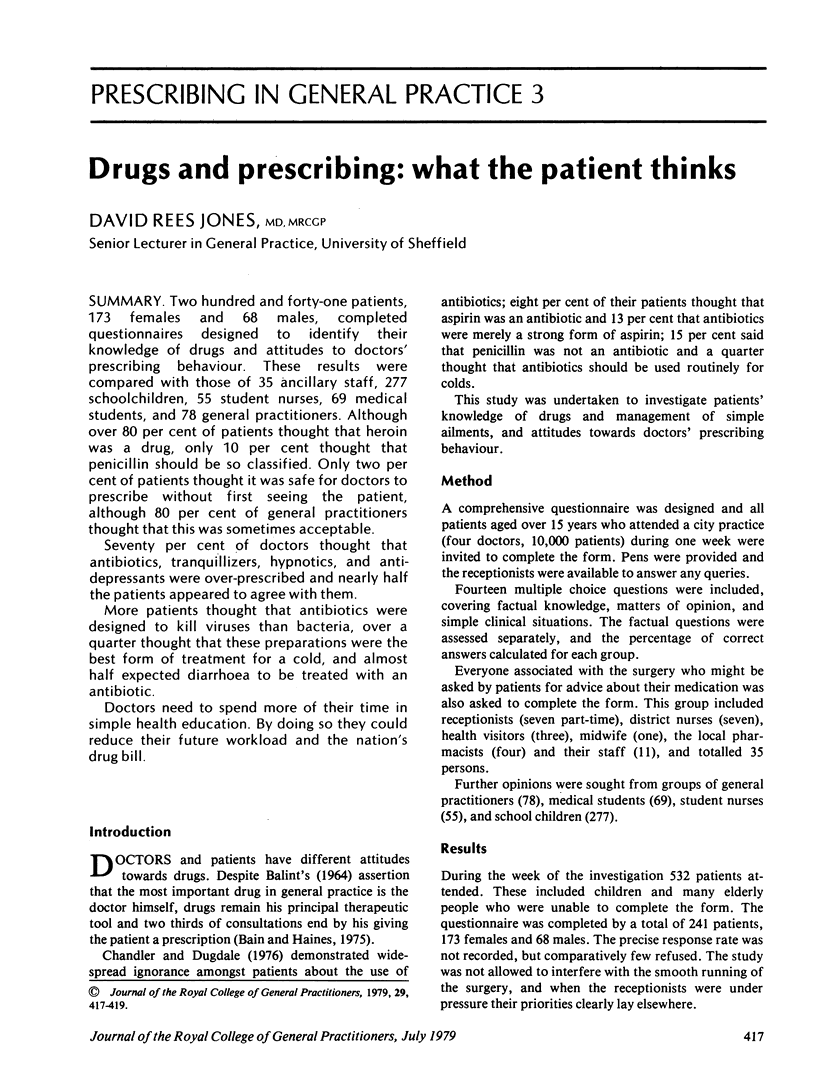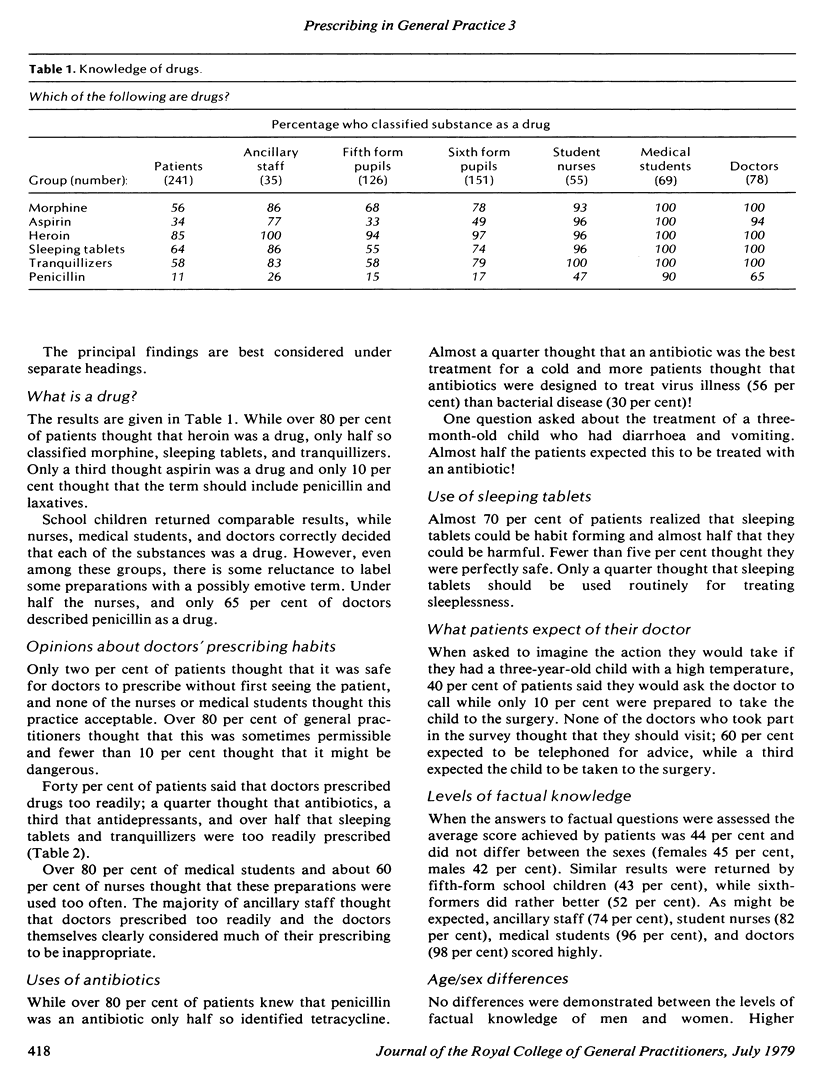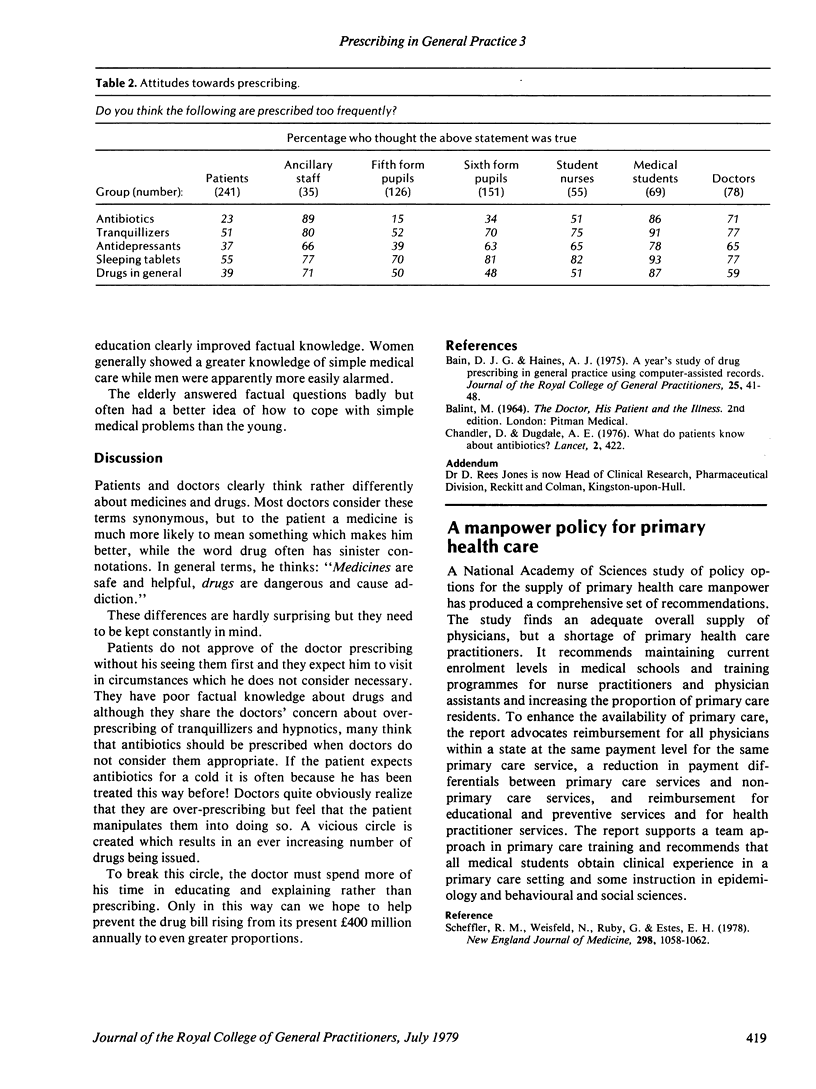Abstract
Two hundred and forty-one patients, 173 females and 68 males, completed questionnaires designed to identify their knowledge of drugs and attitudes to doctors' prescribing behaviour. These results were compared with those of 35 ancillary staff, 277 schoolchildren, 55 student nurses, 69 medical students, and 78 general practitioners. Although over 80 per cent of patients thought that heroin was a drug, only 10 per cent thought that penicillin should be so classified. Only two per cent of patients thought it was safe for doctors to prescribe without first seeing the patient, although 80 per cent of general practitioners thought that this was sometimes acceptable.
Seventy per cent of doctors thought that antibiotics, tranquillizers, hypnotics, and antidepressants were over-prescribed and nearly half the patients appeared to agree with them.
More patients thought that antibiotics were designed to kill viruses than bacteria, over a quarter thought that these preparations were the best form of treatment for a cold, and almost half expected diarrhoea to be treated with an antibiotic.
Doctors need to spend more of their time in simple health education. By doing so they could reduce their future workload and the nation's drug bill.
Full text
PDF


Selected References
These references are in PubMed. This may not be the complete list of references from this article.
- Bain D. J., Haines A. J. A year's study of drug prescribing in general practice using computer-assisted records. J R Coll Gen Pract. 1975 Jan;25(150):41–48. [PMC free article] [PubMed] [Google Scholar]
- Chandler D., Dugdale A. E. What do patients know about antibiotics? Lancet. 1976 Aug 21;2(7982):422–422. doi: 10.1016/s0140-6736(76)92443-0. [DOI] [PubMed] [Google Scholar]
- Scheffler R. M., Weisfeld N., Ruby G., Estes E. H. A manpower policy for primary health care. N Engl J Med. 1978 May 11;298(19):1058–1062. doi: 10.1056/NEJM197805112981905. [DOI] [PubMed] [Google Scholar]



